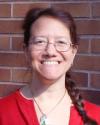Course description
This course examines building coherent systems to handle practical applications. Particular topics vary.
Software resource list
Textbook
There is no required textbook for this course. However, you may find the following reference texts useful.
- Speech and Language Processing: An Introduction to Natural Language Processing, Computational Linguistics, and Speech Recognition, 2nd edition, by Daniel Jurafsky and James Martin. and 3rd edition.
- Foundations of Statistical Natural Language Processing, Chris Manning and Hinrich Schutze.
A number of published research articles will also provide background for the course. The articles are linked from the syllabus below, and the full citations are found in the reading list.
Prerequisites:
- Ling 570, Ling 571, Ling 572
- CSE 373 (Data Structures) or equivalent
- Math 394 (Probability), MIT EdX 6.041, or equivalent
- Formal grammars, languages, and automata
- Programming in one or more of Java, Python, C/C++, or Perl
- Linux/Unix commands
Communication
Per the course policy, all communication outside of the classroom should take place on Canvas. You can expect responses from teaching staff within 48 hours, but only during normal business hours, and excluding weekends.
N.B.: while CLMS students have a private Slack channel, I strongly encourage questions concerning course content and assignments to be posted to the Canvas discussion board, for two reasons. (i) Teaching staff will not look at Slack, so misinformation can spread. (ii) Not every student in the course may be in the CLMS program, but they deserve to be included in course discussions and likely have many of the same questions.
Religious Accommodation
Washington state law requires that UW develop a policy for accommodation of student absences or significant hardship due to reasons of faith or conscience, or for organized religious activities. The UW’s policy, including more information about how to request an accommodation, is available at Religious Accommodations Policy (https://registrar.washington.edu/staffandfaculty/religious-accommodations-policy/). Accommodations must be requested within the first two weeks of this course using the Religious Accommodations Request form (https://registrar.washington.edu/students/religious-accommodations-request/).
Access and Accommodations
Your experience in this class is important to me. If you have already established accommodations with Disability Resources for Students (DRS), please communicate your approved accommodations to me at your earliest convenience so we can discuss your needs in this course.
If you have not yet established services through DRS, but have a temporary health condition or permanent disability that requires accommodations (conditions include but not limited to; mental health, attention-related, learning, vision, hearing, physical or health impacts), you are welcome to contact DRS at 206-543-8924 or uwdrs@uw.edu or disability.uw.edu. DRS offers resources and coordinates reasonable accommodations for students with disabilities and/or temporary health conditions. Reasonable accommodations are established through an interactive process between you, your instructor(s) and DRS. It is the policy and practice of the University of Washington to create inclusive and accessible learning environments consistent with federal and state law.
Privacy Statement
This course is scheduled to run synchronously at your scheduled class time via Zoom. These Zoom class sessions will be recorded. The recording will capture the presenter’s audio, video and computer screen. Student audio and video will be recorded if they share their computer audio and video during the recorded session. The recordings will only be accessible to students enrolled in the course to review materials. These recordings will not be shared with or accessible to the public.
The University and Zoom have FERPA-compliant agreements in place to protect the security and privacy of UW Zoom accounts. Students who do not wish to be recorded should:
- Change their Zoom screen name to hide any personal identifying information such as their name or UW Net ID, and
- Not share their computer audio or video during their Zoom sessions.
Facilitating or perpetrating “zoom bombing” will result in immediate referral to the UW Community Standards & Student Conduct team, with possible consequences being failure in the class and expulsion from the University.
Tentative schedule, subject to change without notice.
